Have you ever been cooking a meal and wondered if your Cavalier could eat the same as you? I have, and I also know that Cavaliers can be greedy too. So I researched the question, ‘What Foods Can a Cavalier King Charles Spaniel Eat’?
Cavalier King Charles Spaniels need a diet that balances nutrition and considers potential health issues. So a balanced diet of protein, carbs, fat, minerals, and vitamins is recommended.
Cavaliers have various genetic weaknesses which need to be kept in check, so their dietary quality and variety are crucial.
Healthy Heart
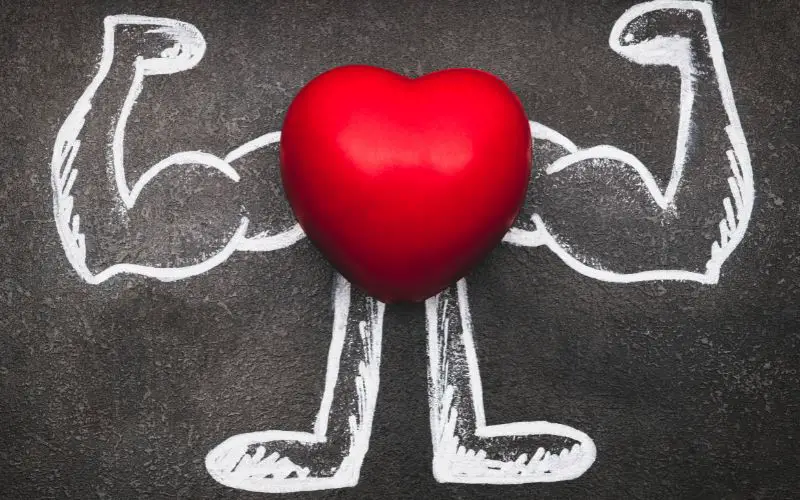
It’s wise to give Cavaliers diets that can counter their inherited vulnerabilities, such as those in their hearts, kidneys, liver, and blood circulatory system. Cavaliers are predisposed to several significant progressive health conditions — myxomatous mitral valve disease (MMVD) being the principal one.
Some Cavaliers also have food allergies. So if you have any concerns, it is recommended that you consult a veterinarian or even perform an At-Home Dog Food Allergy Test before choosing the ingredients for your Cavalier’s next meal.
Preventing Obesity and MMVD
According to the Association for Pet Obesity Prevention, more than 56% of dogs kept as pets are overweight or obese. So there’s more significant than a 50% probability that your Cavalier has a few extra pounds.
Homemade dog food may help your dog maintain its appropriate body mass. Studies show that dogs with a healthy body weight live nearly 2.5 years longer and suffer fewer ailments than their overweight counterparts.
Additional research has found that dogs fed commercially produced food have an average lifespan of 10.4 years, whereas those fed homemade food live up to 13.1 years on average.
In terms of cardiac problems, which Cavaliers can be prone to, homemade food can provide ingredients that support the heart, kidneys, and liver to help dogs manage MMVD and other health conditions.
Making your own food enables you to adapt recipes and include ingredients necessary for your Cavalier’s health. For instance, you might create a grain-free dish without any additional dangerous additives if you’re concerned about grain-free foods increasing the risk of obesity and cardiac disorders in your dog.
Because homemade food is more digestible and has greater bioavailability, it’s better for your Cavalier. Unlike conventional dog kibble, freshly produced homemade food tends to retain more nutritional content, aiding in treating obesity and cardiac-related conditions like MMVD.
It also helps avoid retinal problems by including specific nutrients, minerals, and vitamins. Your dog will prefer homemade meals over commercial kibble, as they will be more enticing, flavorful, and healthy.
Homemade Food Is the Best
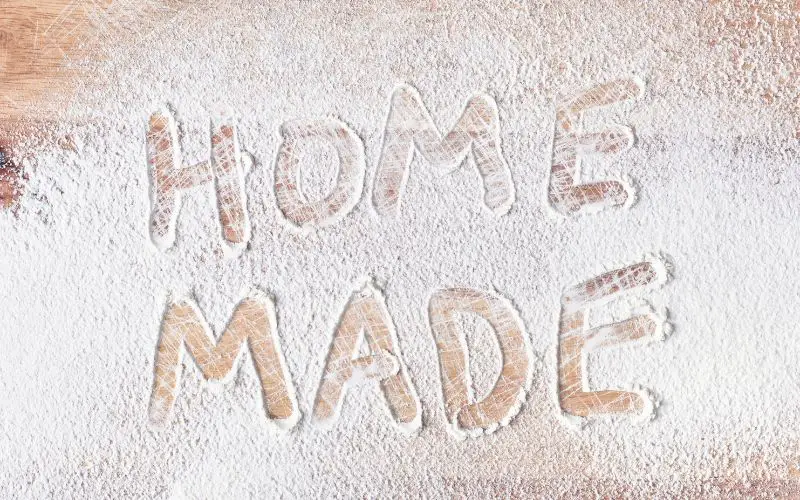
All dry dog food includes chemicals and additives; therefore, the best way to provide greater nutrition for your dog is with a fresh homemade, additive, and chemical-free diet.
It’s easy to keep an eye on and regulate the ingredients in homemade recipes. By using only safe ingredients, it’s possible to avoid triggering any food allergies your Cavalier may have.
Fresh foods, fats that have been preserved, and the correct quantity of antioxidants are all found in homemade cuisine, which can lessen or even eliminate allergies.
The fact that fresh ingredients are more straightforward to digest than commercial dog food kibble is another advantage of homemade meals. As a result, nutrients in a home-prepared diet will be absorbed more effectively due to their increased bioavailability.
Homemade meals’ amino acids, minerals, and vitamins work quickly to lower inflammatory reactions from allergens, keeping skin irritation and itching under control.
Homemade dog food, as opposed to commercial kibble, will allow you to manage the proportions of veggies, carbs, proteins, vitamins, and minerals in your dog’s meals.
This adjustability lets you create a diet to maintain your Cavalier’s healthy body weight while avoiding excessive and unhealthy foods. A healthy weight prevents conditions like patellar luxation and hip dysplasia.
Nutritional Recommendations for Cavalier King Charles Spaniels
Food for Cavaliers should have the six crucial elements recommended by the Association of American Feed Control Officials (AAFCO) to provide a balanced diet. AAFCO is in charge of evaluating and controlling the nutritional content of commercial dog meals.
A Cavalier dog diet plan should consider your dog’s age, size, activity level, weight, and breed-specific requirements. The six nutrients listed below are critical for a dog’s healthy life and functioning:
Protein
Protein is found in chicken, lamb, beef, turkey, fish, cooked eggs, and yogurt. Protein helps to maintain and repair bodily structures like muscles. It’s necessary to produce hormones, enzymes, new skin cells, and more.
Carbohydrates
Carbohydrates are found in oats, potatoes, brown rice, and whole wheat. Carbohydrates are an energy source for dogs and a source of the glucose required for appropriate brain, nerve, and other organ functioning.
Fat
Fat is found in meats and oils, including sunflower oil, olive oil, fish oil, and canola oil. Fat supplies high-quality energy. It’s required for the healthy growth and activity of bodily tissues, including muscles, neurons, and cells.
Minerals
Essential minerals include calcium, sodium, potassium, magnesium, zinc, and iron. Common processes that minerals support include the synthesis of hormones, the maintenance of muscle and nerve functions, the maintenance of fluid equilibrium, and the development of bones and cartilage.
Water
In dogs, hydration is just as essential as it is in humans. A dog that loses 10% to 15% or more of the water in its body can become ill or even pass away. Make sure water is accessible to your dog at all times.
Vitamins
These include Vitamins A, B, C, D, E, and K. Vitamins give your dog the elemental energy they need to perform and maintain the quality of its skin, hair, and teeth.
Human Foods Cavalier King Charles Spaniels Can Eat
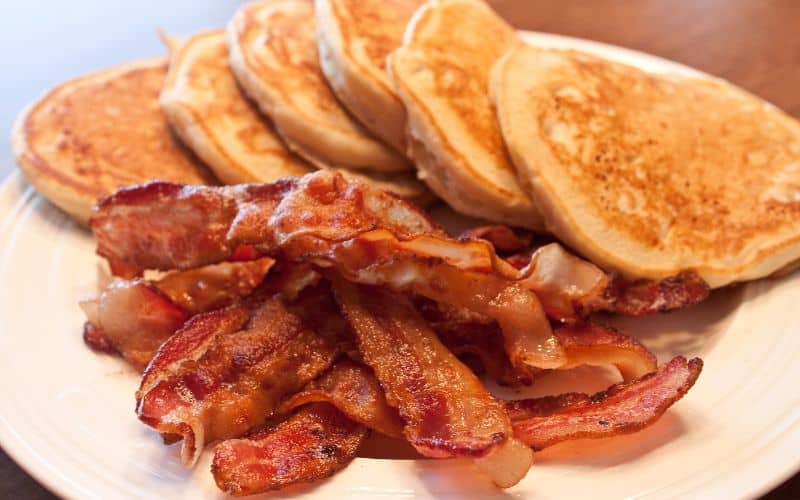
Cavaliers can consume some foods from our plates; however, not all foods may suit them. Some foods might even be toxic. Therefore, be aware of the foods your dog can and can’t eat before giving them a mouthful or two from your dish.
These foods are OK for CKSCs to consume:
- Apples
- Meats
- Salmon
- Peanut butter
- Quinoa
- Popcorn
- Carrots
- Watermelon
By contrast, you should never give your Cavalier foods containing:
- Chocolate
- Xylitol
- Avocados
- Garlic
- Onions
- Tea
- Coffee
- Caffeine
- Raisins
- Grapes
- Raw Bread Dough
- Macadamia Nuts
- Alcohol
Raw Food Diets
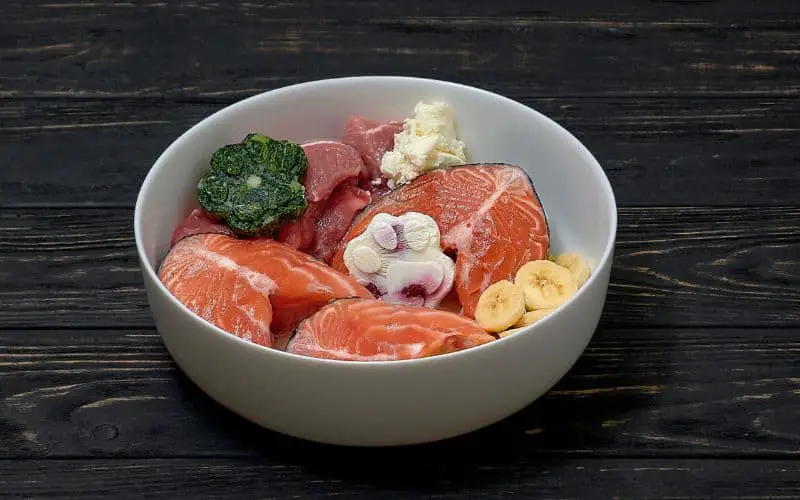
Raw dog food diets have undeniable health benefits for teeth, hair, digestion, allergies, and other conditions, and these advantages are making these diets increasingly popular.
Raw dog food typically includes raw meat, bones, organic meats, and possibly fruits and vegetables. A natural dog diet aims to mimic the food that dogs would have eaten in the wild millions of years ago.
It takes a lot of work to prepare and feed your Cavalier a raw dog diet (also known as BARF, or biologically appropriate raw food) since there’s always a chance of contamination and nutritional imbalance. Fortunately, there are many excellent online resources about preparing a BARF diet for your Cavalier.
How Much Should a Cavalier King Charles Spaniel Eat?
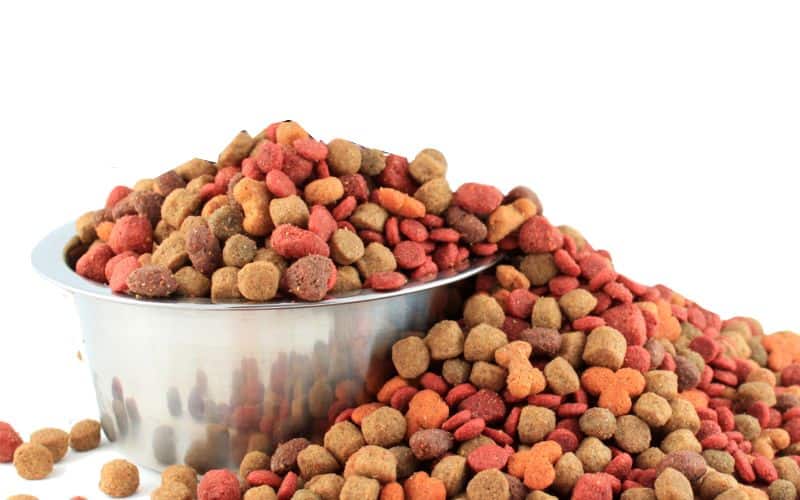
Based on their weight, Cavalier dogs have specific calorie requirements. As adults, Cavaliers typically weigh between 13 and 18 pounds, so their daily caloric needs will fall between 371 and 475.
When giving your dog treats, remember to abide by the 10% rule; 90% of your dog’s calories should come from food, and the remaining 10% should come from treats.
A Cavalier will need 435 calories per day if they weigh 16 pounds. If you give your dog treats, there would be 391 calories (90%) from food and 44 calories from treats (10%). Divide the 435 calories (or 391 if you’re providing treats) between two meals, as full-grown dogs typically eat two meals daily. Based on your dog’s weight, you can use this formula to determine your Cavalier’s precise calorie requirements: calories needed = 27 x your dog’s weight in pounds.
Due to a mother’s increased energy needs after birth and during nursing, pregnant Cavaliers may need up to two to four times as much food as usual. Always confirm these figures with your veterinarian.
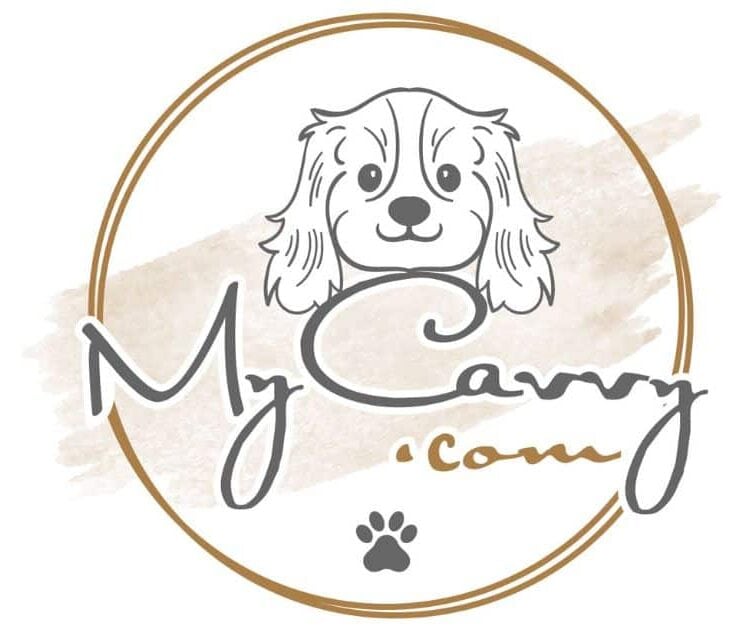
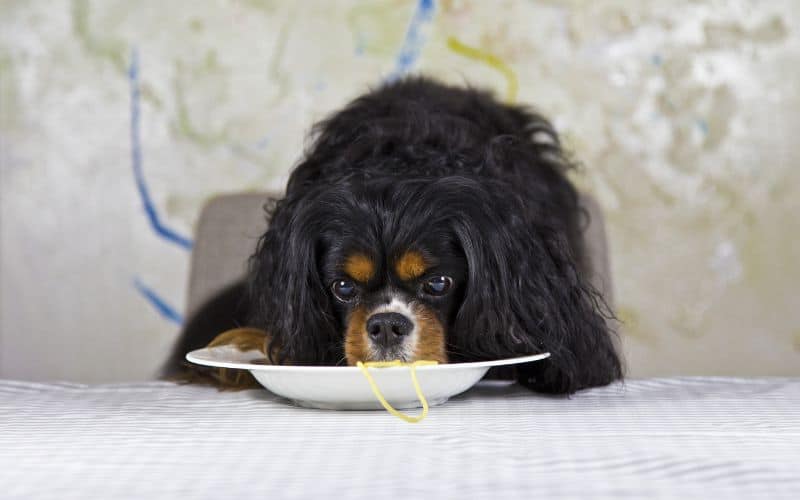
5 thoughts on “What Foods Can a Cavalier King Charles Spaniel Eat?”